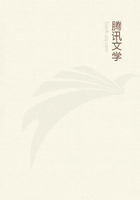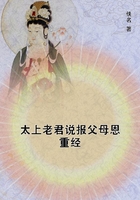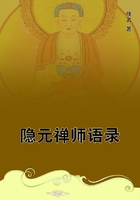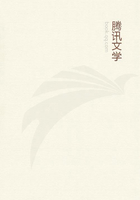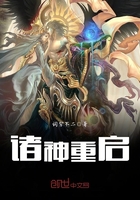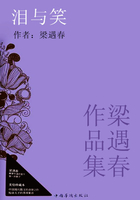But every gentleman understands his own business best."The letter, pervaded by the same spirit of banter throughout, is too long to quote at length, but the following extracts contain the leading idea: "Are you sure, and can you make us sure, that there really exist no such things as God, a future state of rewards and punishments? If so, all is well. Let us then, in our last hours, read Lucian, and play at whist, and droll upon Charon and his boat; let us die as foolish and insensible, as much like our brother philosophers the calves of the field and the asses of the desert, as we can, for the life of us. . . . . Upon the whole, doctor, your meaning is good; but I think you will not succeed this time. You would persuade us, by the example of David Hume, Esq., that atheism is the only cordial for low spirits, and the proper antidote against the fear of death."It is difficult to say whether the puerility or the ignorance displayed in this letter is the greater. Either the writer had never read the Theory of Moral Sentiments at all, or he was so 1ittle versed in philosophy as to see no difference between Deism and Atheism, two distinct logical contradictories. There is, moreover, not a word in Adam Smith's letter to justify any reference to religious questions at all; and sub- sequent quotations from the Moral Sentiments will abundantly demonstrate the total falsity of the churchman's assumptions. Adam Smith treated his letter with the contemptuous silence it so well deserved. The story quoted by Sir Walter Scott, in an article in the Quarterly , that Johnson grossly insulted Adam Smith at a literary meeting in Glasgow, by reason of his dislike for him, as the eulogizer of Hume, is easily shown to rest on no foundation. Hume did not die till 1776, and it was three years earlier that Johnson visited Glasgow.
The two years after the publication of his greatest work Adam Smith spent in London, in the midst of that literary society which we know so well through the pages of Boswell. Then, at the request of the Duke of Buceleuch, he was made one of the Commissioners of Custom in Scotland, and in this occupation spent the last twelve years of his life, in the midst of a society which must have formed an agreeable contrast to the long years of his retirement and solitude. The light duties of his office the pleasures of friendship; the loss of his mother and cousin, and increasing ill health, all combined to prevent the completion of any more of his literary projects. A few days before his death he ordered all his manuscripts to be burnt, with the exception of a few essays, which may still be read.
They consist of a History of Astronomy, a History of Ancient Physics, a History of Ancient Logic and Metaphysics, an Essay on the Imitative Arts, on certain English and Italian verses, and on the External Senses. The destroyed manuscripts are supposed to have comprised the lectures on Rhetoric, read at Edinburgh forty-two years before, and the lectures on Natural Theology and on Jurisprudence, which formed part of his lectures at Glasgow. The additions which lie made to the Moral Sentiments , in the last winter of his life, he lived to see published before his death.
Of the Theory of Moral Sentiments Sir James Mackintosh says:
"Perhaps there is no ethical work since Cicero's Offices , of which an abridgment enables the reader so inadequately to estimate the merit, as the Theory of Moral Sentiments . This is not chiefly owing to the beauty of diction, as in the case of Cicero, but to the variety of explanations of life and manners which embellish the book more than they illuminate the theory. Yet, on the other hand, it must be owned that, for philosophical purposes, few books more need abridgment; for the most careful reader frequently loses sight of principles buried under illustrations.
The naturally copious and flowing style of the author is generally redundant, and the repetition of certain formularies of the system is, in the later editions, so frequent as to be wearisome, and sometimes ludicrous."The justice of this criticism has been the guiding principle in the attempt made in the following chapters to give an account of Adam Smith's system of moral philosophy, the aim having been to avoid sacrificing the main theory to the super-abundance of illustration which somewhat obscures it in the original, while at the same time doing justice to the minor subjects treated of, which, though they have little or nothing to do with Adam Smith's leading principles, yet form a distinctive feature in his work, and are in many respects the most interesting part of it; for critics who have rejected the Theory as a whole, have been uniformly loud in their praises of its minor details and illustrations. Brown, for instance, who has been the most successful perhaps of all the adverse critics of the Theory , speaks of it as presenting in these respects "a model of philosophic beauty." Jouffroy, too, allows that the book is one of the most useful in moral science, because Adam Smith, "deceived as he undoubtedly was as to the principle of morality," brought to light and analyzed so many of the facts of human nature. Dugald Stewart and Mackintosh both say much the same thing; so that it is evident no account of Adam Smith's work can be complete which omits from consideration all the collateral inquiries he pursues or all the illustrations he draws, either from history or from his imagination. To preserve, as far as possible, the proportion which these collateral inquiries bear to one another and to the main theory, as well as to retain what is most characteristic of the original in point of illustration and style, having been therefore the end in view, it has been found best to alter the arrangement in some degree, and to divide the whole into chapters, the relations of which to the divisions of the original will be best understood by a brief reference to the structure of the latter.

